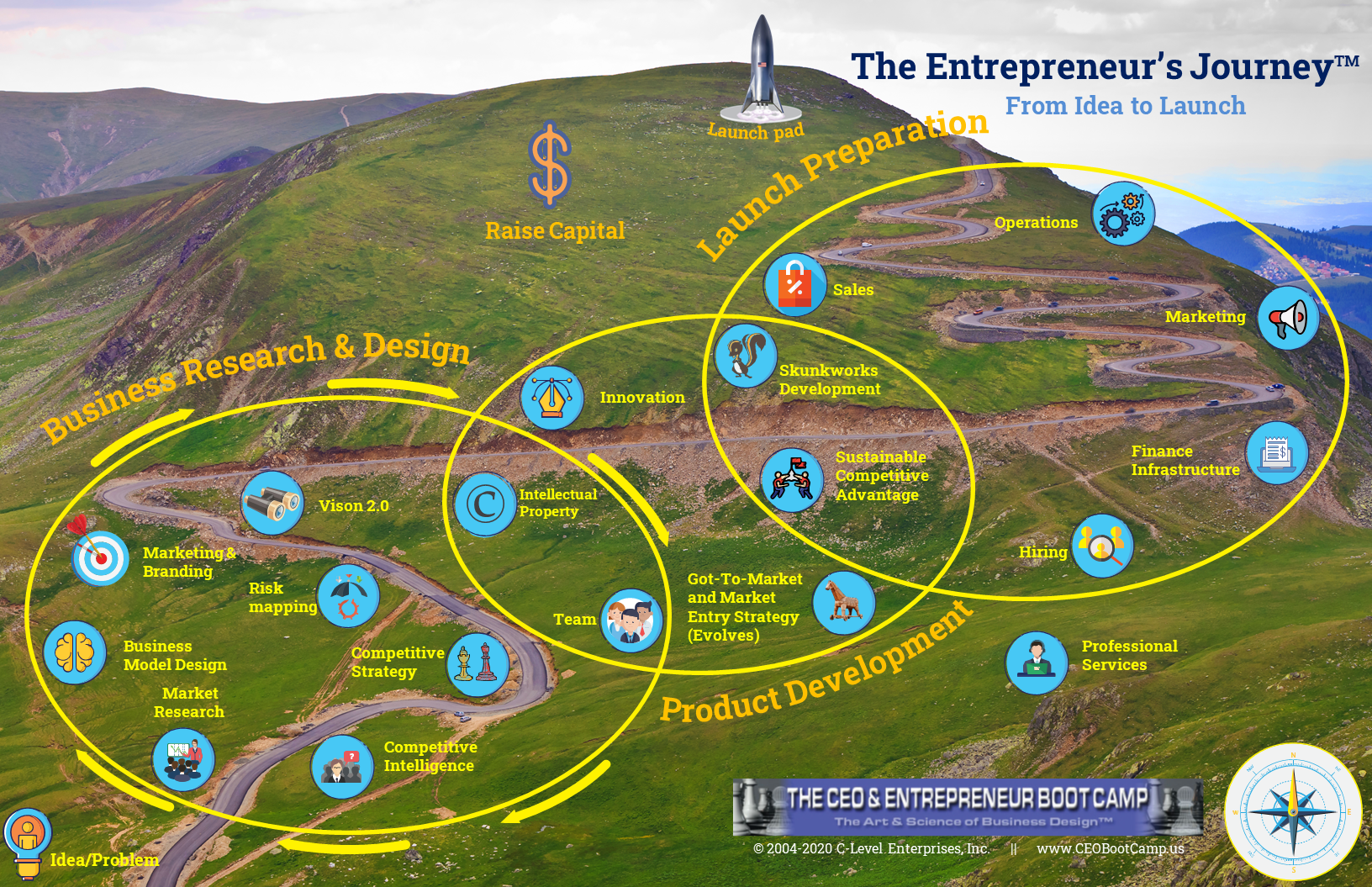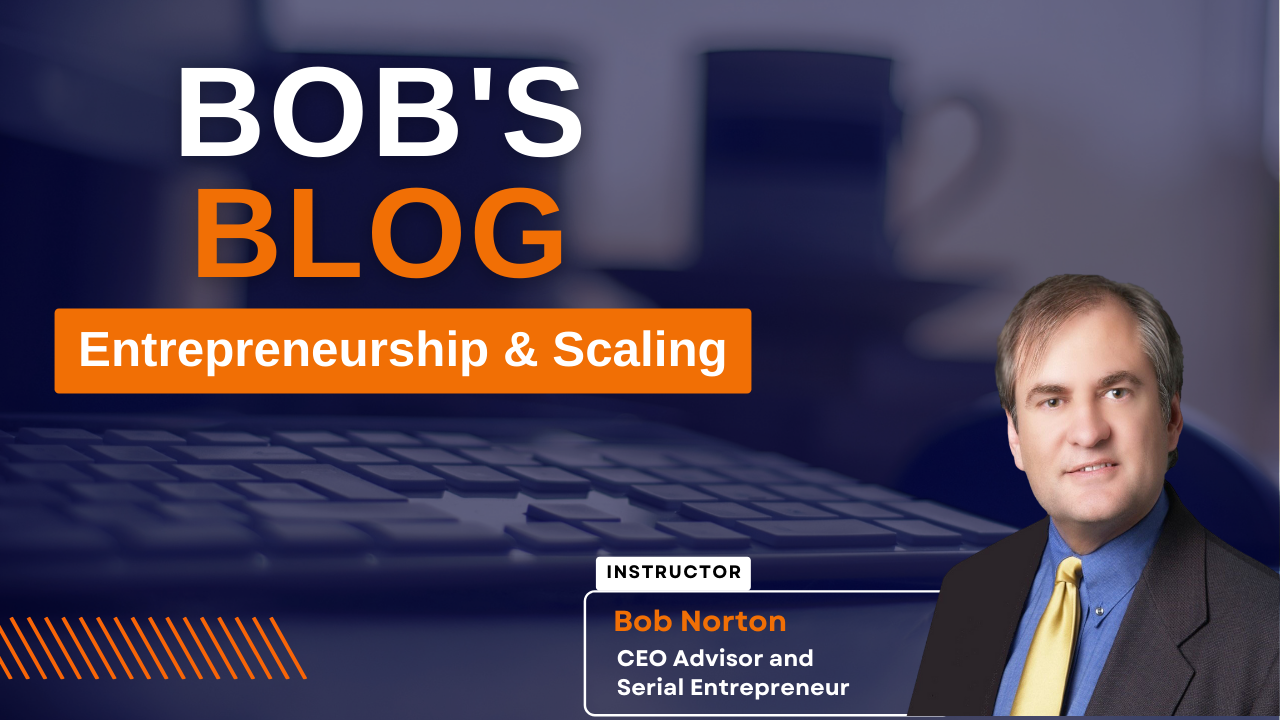How long does it take to prepare to become a founder?

I spent 10+ years preparing to launch my first big company opportunity at age twenty-nine. Having already started four different businesses before I finished high school, I had some basic experience and knowledge. I worked as a software engineer in my first full-time job after college. I worked on both mainframes and the first major Apple computer (Apple II). I then quickly move up the ranks to Senior Software Engineer, Architect and Vice President of Engineering by year five of my professional career. That is exceptionally fast because I read every book available, did consulting on the side, worked long hours and had little social life. I also had the benefit of working in a newer field (microcomputers) where no one had five or ten years more experience than me because the field was new and rapidly changing too. I had been programming computers since age sixteen, which was rare then, so even starting my first job I had the equivalent of a couple of years full-time experience.
It takes a good five years to learn the art of management, and another five to become an expert in some industry or area. Maybe there can be some overlap there. So typically, I recommend getting a minimum of 8 to 10 years’ experience before attempting to start a company. This allows you to learn from others because once you are the CEO/Founder you have no one to help make key, strategic decisions. And a bad decision can be fatal to a company when it is young.
To be a founder you must have basic, strategic level, knowledge in marketing, sales, operations, finance and product development. Each a very different art or discipline, and anyone not being done well can spell death for a small company. Then there are the arts of business strategy, industry domain experience, management and leadership, raising capital, vision and understanding the dynamics of building an organization and its culture. Plenty of companies eventually become successful, doing most well and some wrong. Then they can afford the time and money to correct the weaker areas. Most though will fail because just one is lacking. Like the slowest ship in the fleet, company growth is usually limited by one or more areas that are the weakest.
And see over forty other courses here that are designed to prepare people to launch companies
To become a strong founder, or even manager, you must also read many books, learn to recruit and manage people. Not doing this for years in advance add lots of risk to launching any company unless you have unlimited time and money. Most stories you hear of young entrepreneurs or new college graduates building a big, successful company are greatly exaggerated, or the rare exceptions to being in the exact right place and time plus lots of luck. Almost always when you look closely, you see the founder spent years learning before that success, sometime at that company and sometimes at previous ones.
This is not to take away from these younger founders, as they had the raw intellect, persistence and resourcefulness to survive hard times. i.e. Dell, Microsoft, Oracle, AirBnB, Uber. The book The Founders on the genesis of PayPal documents the many years of blood, sweat and tears usually needed with risk, trial and error and close calls with bankruptcy that made Elon Musk and the “PayPal mafia” so successful. I recommend it to any founder.
 |
Learn more about our Growth and Scaling (GSP) |
|
For a free video consultation call on what your |
The book Creativity, Inc. tells this same story for Pixar which had a twenty-year genesis from the first twinkle in the co-founder’s eye of doing a feature film all on a computer in the 1970s. He stuck with that idea until it was finally achieved decades later with the release of Toy Story in 1995. Steve Jobs invested the first $10M in Pixar in 1986, and it still took nine years after that capital infusion to reach that initial goal. The idea was way ahead of the processing capability of computers at that time, as the Metaverse is today.
You can take a free online course I crate that reviews the thirty skills needed to start a significant company.

Typically, young startups all endured five plus years of hard learning, trial and error and pivoting before becoming successful. And they must hire very experienced executives to help grow the company (a very different skill than starting one) once they have found a good product-market fit. Hiring top people is a catch-22 in the beginning without money. You need to use equity and find believers that are ready to risk it all for the upside of a big exit that can net them $10M or more.
Our education system has failed for decades now to teach younger people about the value of experience and huge effort this takes. An overcorrection for self-esteem means most graduate thinking success is easy, and they can become billionaires quickly (really). This is a side effect of the “every gets a trophy” mentality started in schools around 2005 which degrades incentive for effort, competition and a realistic view of the real-world once children emerge from the parental bubble of protection.
Also check out my blog I have loads of posts on entrepreneurship, scaling and raising capital.

Click here to visit my Blog
Bob Norton is a long-time Serial Entrepreneur and CEO with four exits that returned over $1 billion to investors. He has trained, coached and advised over 1,000 CEOs since 2002. And is Founder of The CEO Boot Camp™ and Entrepreneurship University™. Mr. Norton works with companies to triple their chances of success in launching new companies and products. And helps established companies scale faster using the six AirTight Management™ systems. And helps companies successfully raise capital.
Call (619) SCALE06 or email [email protected] for a complementary strategic consultation




